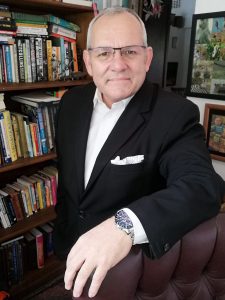Copyright 2013-2024 | Marcus van Wyk | All Rights Reserved
In the regular walk of life, we are members of an array of groups – sport, politics, family and community. Groups offer us identity, which we embrace, giving us a sense of meaning, purpose, solidarity, and a place of belonging. Identity is an intrinsic PRIME VALUE. Few things can inspire duty and honour, like the power of identity.
Along with our comrades, in a group, we are confident, strong, and proud, and despite our differences, we stand united when competing against other groups. The culture of team competitiveness is visible as we battle for victory.
Often, if we need to, we will sacrifice for the good of the group.
In our groups, we have rituals, flags, and symbols that communicate missions and values. We proudly wear symbols for others to see WHO we are.
The Workplace
The workplace is a group with the same dynamic. At work, people embrace identity and want to belong and be part of something important. People spend more time in this group than any other. In the workplace, we have groups within a larger group – Finance, Customer Care, Sales and Human Resources, etc.
Identity is an intrinsic PRIME VALUE and, and when fully embraced, inspires individual engagement, discretionary effort (going the extra mile) and unexpected higher productivity. People will take pride in their jobs and together work towards a common goal, irrespective of the diverse differences in the group. Members will see differences as a strength and not a liability and, to the advantage of the group, they will leverage these differences to their advantage and focus will be on game plans, improved individual decision making such as Quality of Work, Initiative, Teamwork, Problem-Solving, Adapting to Change, Motivational Intensity and Accountability becomes noticeable.
Often, high productivity does not manifest because of large monetary rewards. Rather, people embrace identity and the values of the group to which they belong. Good company culture also develops this way. You can’t force culture, however, you can influence people to focus on the benefits of embracing identity. If they pour their emotional energy into embracing identity, then sought after group outcomes will take care of itself.
The secret is to help people focus on that PRIME VALUE of identity. It is getting a fix on that value and holding course. The way to hold that course is to constantly communicate within people’s experiences of identity. Something they understand and something to which they can draw an analogy. People will react more readily to such a message. Communication about the importance of identity without individual experience is rhetoric and has a very restricted meaning.
Something to remember
- People already belong to groups outside the workplace and is nothing new to them. It is already within their experiences. Use that information as a launch setting. From this analogy, you can influence people to embrace identity and align to the organisations’s overall goals.
- Allow people to give their groups names. Let them create symbols that show WHO they are, rather than WHAT they are. Create ‘path visuals’ that tell stories of the group’s progress and HOW the group competes and how it bolsters other groups in the bigger scheme of things.
- Let groups compete. You will see loyalty and you will see the emergence of potential leadership capability.
- Identity plays a vital role in people realising a sense of purpose and belonging.
- The right people in the right jobs are considerably more productive when they have embraced identity. Putting the right people in the right jobs further fosters a mindset of identity and full engagement to the group and work.
Would you like to explore Marcus’ guidance or training on identity and team work?
He would love to hear from you.
marcus@powerassessments.com
or call +27 82 685 8896


